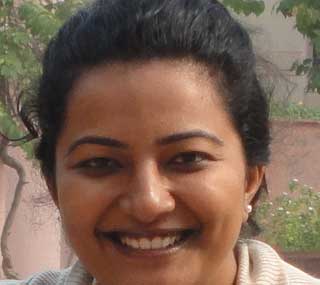How Not To Read History
By Jayanthi A Pushkaran
26 February, 2014
Countercurrents.org
There is nothing like a cultural controversy to stimulate the social imagination. The Doniger’s episode is a bit like most of the previous controversies on books where a ban or censorship (enforced or otherwise) comes out as knee-jerk solution. To police ideas and scholarship for appeasing certain group signals the erosion of liberal tradition in India. Now that the dust has settled over the decision of Penguin India to withdraw and pulp Wendy Doniger’s book ‘The Hindus-An alternative history’ in an out of court settlement with a Hindu group that had protested against the book, one realises that scholarly work on history is increasingly being silenced by communal bullies in the name of national pride. A new intolerance is gripping India, gradually tightening its claws around not just the body politic but the mind of the nation.
Media and intelligentsia have bemoaned this incident as an assault on free speech, dismal state of law and government’s incapacity to stop fundamentalists from threatening the publishing houses and authors. However, what we are witnessing is something far worse, an attack on free inquiry. Censorships on academic works are being sought through political, institutional, legal, private and violent means. This is not the first time books have come under attack. In 2008, Oxford University Press decided to cease publication of a scholarly essay on the Ramayana, and in 2011, Delhi University took the same essay off its syllabus after the ABVP activist called the essay blasphemous. James Laine’s book on Shivaji was banned in Maharashtra, after Shiv Sena went on a rampage. And Salman Rushdie's Satanic Verses remains banned to this date. Reputed publishers succumbing to the pressures of these self-styled custodians of culture send a signal to others.
The issue raises many concerns about the fundamentals of acquiring and handling of knowledge in this country. The matter is not about the eventual victor, but about the very future of scholarship and its shrinking discursive space. The incident highlights that the barriers to free inquiry in India today is doubly threatened by intolerance and weak institutions that have failed to secure liberal values. There is something quite worrisome about this situation for it has commanded a compulsory elimination of a scholarly work. We do not have to agree with Doniger’s book but to go to the extent of erase it and not letting people to be exposed to differing points of view is authoritarian. This is absurd because it leaves no possibility for critical discernment. Evelyn Beatrice Hall once stated under the pseudonym S. G. Tallentyre in 1906, “I disapprove of what you say, but I will defend to the death your right to say it”. To censor ideas and academic work, because they are offensive to some, prevents the scope for even attempting genuine intellectual discourse.
Over the years, the war on books has become a feature of the larger battle over identity and sentiments. A feature of this conflict is to oppose anything that does not confirm to what is supposedly assumed as the correct view by a few. Instead of being an open-ended probe into history, the practice of scholarship is, oddly, compelled to confirm to the whims of populist groups. Scholarship needs to be free to interpret events. To limit academic expressions between political correctness and rigid intolerance is to undo the ethos of rational enquiry.
Wendy Donigers book should be read twice. Firstly, it should be read it for what she says. Departing from an inflexible and uninformed understanding of the religion, she underlines the less spoken narratives of women, Dalits and other pluralistic traditions to capture its remoteness as against the political mobilisation of Hinduism as a homogenous narrative. Secondly, one should read it to observe what we read into it. One clearly senses an explicit split between knowledge and politics here. For many years now, right wing groups, in the name of instilling patriotism have been trying to spread a communal interpretation of history through distorting textbooks and curriculum. The more dangerous trend is the attempt to use government institutions and political power to attack rational and secular history and historians to promote an obscurantist, regressive looking communal historiography.
A large number of historians in India have effectively critiqued the attempts by communal forces to paint Indian history in a narrow sectarian hue. Noted historians such as Romila Thapar and Irfan Habib have, time and again, highlighted how Hindutva version of history, in fact, ends up reiterating the work of James Mill and Lord Macaulay in its definition of Indian civilization and of monolithic communities dominating history. The Nobel Laureate Amartya Sen, for example, observes in his book ‘The Argumentative Indian’ that India’s persistence heterodoxy and its tendency towards multi-religious and multi-cultural co-existence had important implications for the development of mathematics and science in India. Moral and cultural policing of knowledge curtails the possibility of pluralism which is required to interpret the myth, legend, folktales and societal memories in a country where text and oral traditions co-existed.
Religious sentiments were hurt when the practice of Sati was questioned in India. Religious sentiments could be hurt if scientific findings question the religious positions on origin of life. Does that mean one should go to the extent of banning or altering such knowledge in line with religious diktats? For knowledge to prevail in any area there needs to be a critical enquiry and scrutiny of the subject matter. This includes the scope for analysis of traditional, contentious and multiple ideas. And India needs to rise to such possibilities.
 The author is a Programme Director at the organization Delhi Greens and a doctoral candidate at the Centre for Studies in Science Policy, Jawaharlal Nehru University. Email: [email protected] twitter: @apjayanthi
The author is a Programme Director at the organization Delhi Greens and a doctoral candidate at the Centre for Studies in Science Policy, Jawaharlal Nehru University. Email: [email protected] twitter: @apjayanthi
Comments are moderated
